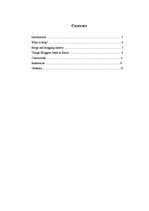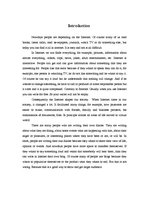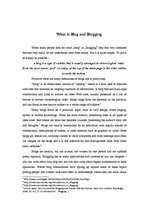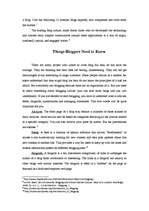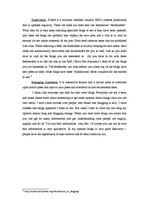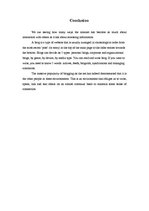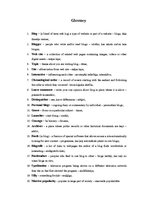-
Blog and Blogging
| Nr. | Sadaļas nosaukums | Lpp. |
| Introduction | 3 | |
| What is blog? | 4 | |
| Blogs and blogging history | 5 | |
| Things Bloggers Need to Know | 6 | |
| Conclutions | 8 | |
| References | 9 | |
| Glossary | 10 |
When many people hear the word „blog” or „blogging” they feel very confused because they really do not understand what thats means. But it is quite simple. To put it as simply as possible –
a blog is a type of website that is usually arranged in chronological order from the most recent ‘post’ (or entry) at the top of the main page to the older entries towards the bottom.
However there are many definitions of blogs this is pretty easy.
"Blog" is an abbreviated version of "weblog," which is a term used to describe web sites that maintain an ongoing chronicle of information. A blog features diary-type commentary and links to articles on other Web sites, usually presented as a list of entries in reverse chronological order. Blogs range from the personal to the political, and can focus on one narrow subject or a whole range of subjects.
Many blogs focus on a particular topic, such as web design, home staging, sports, or mobile technology. Some are more eclectic, presenting links to all types of other sites. And others are more like personal journals, presenting the author's daily life and thoughts. Blogs are usually maintained by an individual with regular entries of commentary, descriptions of events, or other material such as graphics or video.…
We are seeing how many ways the internet has become as much about interaction with others as it has about accessing information. A blog is a type of website that is usually arranged in chronological order from the most recent ‘post’ (or entry) at the top of the main page to the older entries

